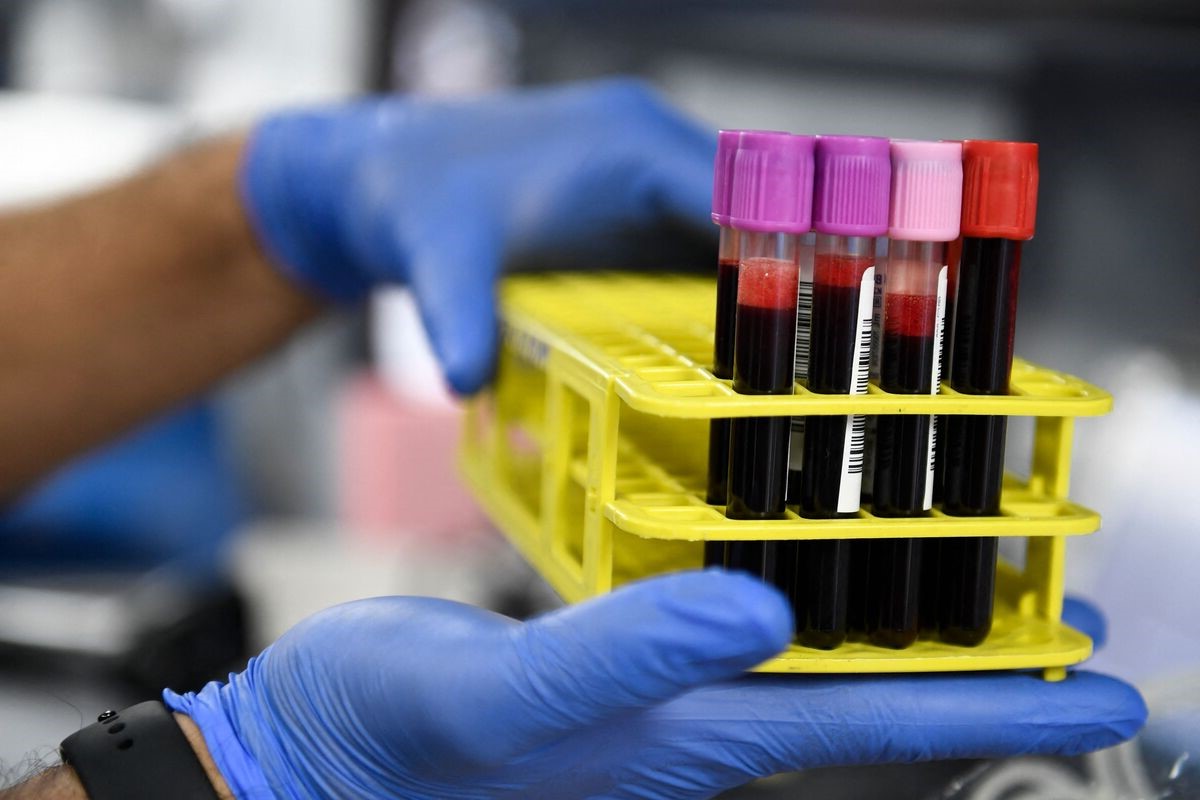
Ever wondered if your blood type plays a role in how your body handles certain diseases, like COVID-19? Well, you're in for a treat! Today, we're diving into the fascinating world of O positive blood type and its connection to COVID-19. O positive blood type might just have some intriguing perks when it comes to this global pandemic. From immunity quirks to donation benefits, we've got the lowdown on what makes this blood type stand out in the fight against the virus. Buckle up, because we're about to unravel some of the most compelling facts that link O positive blood type to COVID-19. Ready to get your mind blown? Let's get started!
Key Takeaways:
- O positive blood type is common and valuable for transfusions, especially in emergencies. It may also have a lower risk of COVID-19 and milder symptoms if infected.
- Donating O positive blood is crucial, especially during the pandemic. Research into its relationship with COVID-19 could provide valuable insights for managing the virus.
Understanding O Positive Blood Type
O positive is one of the most common blood types, found in about 37.4% of the world's population. This blood type plays a crucial role in blood transfusions because it can be given to individuals of all positive blood types, making it extremely valuable in emergency situations.
- O positive blood type is the most common blood type globally, making it highly sought after for blood donations.
- Individuals with this blood type can donate red blood cells to any Rh-positive individual, which includes those with A+, B+, AB+, and O+ blood types.
O Positive Blood Type and Covid-19
Research has suggested that blood type might influence susceptibility to COVID-19 and its severity. Early studies indicated that individuals with O blood type might have a lower risk of contracting the virus.
- Studies have shown that people with O positive blood type may have a slightly lower risk of catching COVID-19 compared to other blood types.
- Additionally, those with O positive blood type might experience milder symptoms if they contract the virus, although more research is needed to fully understand this relationship.
The Importance of O Positive Blood in Transfusions
Blood transfusions are a critical component of modern medicine, used in surgeries, to treat injuries, and for various medical conditions. O positive blood's versatility makes it incredibly important in these lifesaving procedures.
- In emergencies, when there's no time to test a patient's blood type, O positive blood is often used, especially since it's compatible with any Rh-positive patient.
- Despite its versatility, O positive individuals can only receive O positive or O negative blood, highlighting the importance of donations from these groups.
How Covid-19 Impacts Blood Donation
The COVID-19 pandemic has had a significant impact on blood donations, with many blood drives canceled and a general decrease in donations due to health concerns and social distancing measures.
- The pandemic has led to a decrease in blood donations, making it more challenging to maintain a sufficient supply of O positive blood.
- Health organizations have implemented strict protocols to ensure the safety of donors and staff during blood donation processes, encouraging healthy individuals to donate, especially those with O positive blood type.
The Role of Genetics in Blood Type
Blood type is determined by genetics, inherited from our parents. The presence or absence of certain antigens on the surface of red blood cells determines an individual's blood type.
- An individual's blood type, including O positive, is determined by the genes inherited from their parents.
- The O blood type allele is considered recessive, meaning both parents must either carry or express the O gene to have a child with O positive blood type.
O Positive Blood Type and Pregnancy
Pregnancy can be complicated by the Rh factor, especially when an Rh-negative mother carries an Rh-positive baby, potentially leading to Rh incompatibility issues.
- Rh incompatibility can be a concern in pregnancies where the mother is Rh-negative and the baby is Rh-positive, but this does not affect O positive mothers.
- O positive women have Rh-positive blood, reducing the risk of Rh incompatibility issues during pregnancy, although they still need to be monitored by healthcare professionals.
Global Distribution of O Positive Blood Type
The distribution of blood types, including O positive, varies significantly around the world, influenced by genetics, evolution, and migration patterns.
- Certain regions, such as South America and Africa, have higher percentages of O positive individuals compared to other parts of the world.
- Understanding the global distribution of blood types helps in planning for medical needs and emergency responses, especially in areas with high demand for O positive blood.
The Future of Blood Typing and Transfusions
Advancements in medical science continue to explore better ways to manage blood types in transfusions, aiming to improve safety and efficiency.
- Researchers are investigating methods to convert other blood types into O type, which would revolutionize blood transfusions by potentially eliminating blood type compatibility issues.
- Innovations in synthetic blood and blood substitutes are also being explored as alternatives to traditional blood transfusions, which could significantly impact the reliance on specific blood types like O positive.
O Positive Blood Type and Immunity
The relationship between blood type and immunity, especially in the context of infectious diseases like COVID-19, is an area of ongoing research.
- Some studies suggest that individuals with O positive blood type may have a different immune response to certain pathogens, including viruses, although the mechanisms are not fully understood.
- Understanding how blood type affects immunity could lead to more personalized approaches in treating and preventing infectious diseases.
The Significance of O Positive Blood Type in Medical Research
Medical research often focuses on common blood types like O positive due to their prevalence and significance in transfusions and genetic studies.
- O positive blood type is frequently studied in genetic research to understand the inheritance and distribution of blood types.
- Its commonality and versatility in transfusions make O positive blood type a focal point in studies aimed at improving blood donation systems and transfusion practices.
Encouraging Blood Donation Among O Positive Individuals
Given the high demand and versatility of O positive blood, encouraging donations from individuals with this blood type is crucial for maintaining blood supply.
- Blood donation campaigns often target O positive individuals due to their ability to help a wide range of patients.
- Regular donations from O positive donors are essential to ensure a stable blood supply for medical treatments and emergencies.
The Impact of Covid-19 on Blood Type Research
The COVID-19 pandemic has spurred increased interest in the relationship between blood type and disease susceptibility, leading to new research directions.
- The pandemic has highlighted the need for more research into how blood type influences the risk and severity of diseases like COVID-19.
- Ongoing studies into the connection between O positive blood type and COVID-19 could provide valuable insights into managing and preventing the spread of the virus.
A Final Look at O Positive Blood Type and COVID-19
O positive blood type, one of the most common yet fascinating blood types, has been under the spotlight in the context of COVID-19. Research suggests individuals with this blood type might have a slight edge against the virus, showing milder symptoms and a lower risk of severe outcomes compared to other blood types. However, it's crucial to remember that no one is invincible. Regardless of blood type, taking precautions, following health guidelines, and getting vaccinated remain our best defenses against COVID-19. This peek into the relationship between O positive blood type and COVID-19 underscores the importance of ongoing research and our understanding of the virus. It's a reminder of the complexity of our bodies and the need for collective action in the face of health crises.
Frequently Asked Questions
Was this page helpful?
Our commitment to delivering trustworthy and engaging content is at the heart of what we do. Each fact on our site is contributed by real users like you, bringing a wealth of diverse insights and information. To ensure the highest standards of accuracy and reliability, our dedicated editors meticulously review each submission. This process guarantees that the facts we share are not only fascinating but also credible. Trust in our commitment to quality and authenticity as you explore and learn with us.


